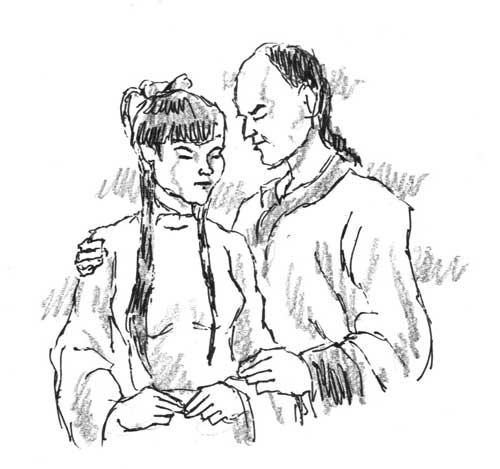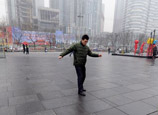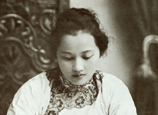
 |
| (Global Times) |
It was reported recently that Legend of Zhen Huan, the hottest Chinese TV drama series of 2012 which depicts a fierce power struggle among a Qing Dynasty (1644-1911) emperor's concubines, will be aired in the US. Chinese netizens have delighted in imagining the English translations of the genteel dialogues in this TV series.
Taking a humorous tack, netizens have enthusiastically proposed some choice Chinglish translations. The dialogue box added on one still from the drama is especially amusing to Chinese Web users. Zhen Huan, the most favored concubine, leans into the arms of a prince, whom she has an affair with. The dialogue box reads: "Huanhuan, how are you?" "Fine, thank you, and you?"
That's a joke that every Chinese who's learned English in China can get. For me, years after I graduated from middle school, hearing a foreigner say, "How are you?" would prompt an alarmingly instinctive response from deep in my mind: "Fine, thank you, and you?"
That is a short dialogue from English textbooks that every Chinese middle school student learns by heart. In morning reading class, deskmates are encouraged to practice with each other. "How are you?" "Fine, thank you, and you?" "I'm fine too!"
The tone of every word is replicated exactly from the voices from the textbook cassettes. The Chinese language, unlike English, has a very strict tone for every single word. Once young students learn to perfectly imitate the tone of words from the textbook cassettes, which were pronounced with no such intent, they stick to it for a lifetime.
That's why 1,000 Chinese students can recite English sentences together with appallingly identical tones - Fine (in the fourth tone - falling - as measured by Chinese linguistic standards), thank (first tone - high and sustained) you (fourth tone), and you (second tone -rising)?
There is a classic joke lampooning Chinese spoken English as mastered through such rote memorization. A Chinese girl takes a tumble on a mountain in the US. A cop arrives and asks: "How are you?" The girl answers feebly but full of determination, "Fine, thank you, and you?" The cop thus leaves, and the girl is never saved.
Nonetheless, the fact that more and more Chinese have begun to mock such awkward usage actually signals a positive change. Chinese who use English in their daily lives and work have learned to use the language more flexibly, like any other pragmatic tool. Even those who don't have to use English regularly have also abandoned the robotic, stiff English they once learned.
On the other hand, the mockery of Chinglish actually denotes a certain cultural confidence. Previously, educated Chinese, holding great reverence toward the language, could perfectly recite the audio lessons from their childhood English classes but had little bravery to go further.
This is partly to blame for the regional distortion of the language, as learning amounted to endlessly repeating lessons to foster an "authentic" American accent, sparking a religion-like enthusiasm. Today, people are more comfortable with the notion that Chinese characteristics have been added to this global language.
Just like "people mountain people sea," the literal translation of a common Chinese saying, Chinglish expressions are growing increasingly popular among the colossal group of modern English speakers in China. Who knows? If netizens' Chinglish translations are adopted in the US broadcast of this red-hot TV drama, once-formal utterances like "Fine, thank you, and you?" may find their way back into common usage.
The author is an opinion editor with the Global Times. [email protected]
















 'Wedding' for two old men in Beijing
'Wedding' for two old men in Beijing


![]()
